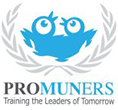Debate Workshop
The Debate Workshop will help you overcome your fear of public speaking and give you effective persuasion abilities. The Workshop emphasizes learning through experience, and will focus on practicing the material during the sessions.
It doesn’t matter how good your idea is if you are unable to convey your message properly. This is where we come in – our Debate Workshop will help you overcome your fear of public speaking and give you effective persuasion abilities. The Workshop emphasizes learning through experience, and will focus on practicing the material during the sessions.
Every session in the workshop is suited to your own personal pace, optimizing your learning experience. Whether you are skilled public speakers or complete novices, you will be able to improve your public speaking skills in our sessions.
The Workshop consists of 10 sessions, and the 10th and final session is the highlight of the entire workshop – a debate competition.
What is “Debate”?
Our Debate Workshop combines lectures on the key principals of public speaking with implementation of the material through practice and exercise. The Workshop will teach the participants to convey their message clearly and logically and improve their oral and written abilities to express themselves.
Debate programs can be found anywhere in the world, and prominent alumni include Bill and Hillary Clinton, Israeli Prime Minister Binyamin Netanyahu, former Israeli ambassador to the UN Danny Gilerman and many others.
Debate is an intellectual sport that challenges the participants to persuade the audience to either support or object to a specific topic. The rules of procedure are based on rules governing a political debate, where a bill is being discussed by opposing parties. One group represents the “Government” and tries to gain support for the topic, while the other group represents the “Opposition” and tries to persuade the audience to object to the bill. This creates and active and dynamic discussion that puts the skills of the participants to the test.
Why learn “Debate”?
Considering the overabundance of information accessible to us today, there is great importance in knowing how to absorb, evaluate and process it correctly into a coherent message. Moreover, the overabundance of information might limit one’s ability to develop creative, independent and critical thinking. “Debate” allows the participants to overcome this problem by teaching them to analyze, understand and process the information into original thoughts. Additionally, the focus on verbal and non-verbal communication allows the participants to improve their confidence, self-expression abilities and communication skills.
The goals of “Debate”:
- develop creative, independent and critical thinking
- improve rhetorical skills
- increase involvement in social and political issues
- expose the participants to the norms of group discussions
- encourage the participants to express themselves
- strengthen confidence
Possible topics for discussion:
- Israel as a democratic and Jewish state – is it possible? How do you bridge the gap?
- Individual rights and the State – when can and should the state intervene and limit rights?
- Law and Order – the essence of law, justice and morality
- Politics – separation of powers, structure of the political system, elections etc.
- Economy – different types of economies and their influence on society
- Media – how does mass media influence our lives?
- Gender equality – how can it be improved?
Abbreviated Syllabus:
Session 1 – Introduction to Debate
- Introduction to basic principles and Rules of Procedure
- First practice of public speaking and overcoming stage fright
- Practice and personal feedback
Session 2 – How to give a winning speech
- Speech techniques – logical structure, “the principle of three”, using “branching” and bullet-points
- Exercising improvised speeches
- Practice and personal feedback
Session 3 – Argumentation
- How to transition from an unfounded claim to logical arguments
- How to ask questions in order to create a logical chain
- Why do we need examples?
- The importance of finishing with costs and benefits
- How to build and develop your argument
- Practice and feedback
Session 4 – How to find arguments (preparation for a debate)
- Research and analysis of topics, brainstorming, usage of criticism for finding arguments
- Practical Influences and Principle Influences
- Practice and feedback
Session 5 – How to persuade?
- The basic model of persuasion, the three questions that motivate action
- The role of the Prime Minister in a Debate
- How to introduce problems, objectively define concepts and promote effective and ethical solutions
- Practice and feedback
Session 6 – Rebuttal and how to ask questions
- The 6 question model – how to refute any argument
- Techniques for asking and answering questions
- The role of the Opposition in a Debate
- simulation
- Practice and feedback
Session 7 – conclusion and emphasizing your position
- Structuring logical analyses and thematic summaries of the discussion
- Effectively finding, explaining and analyzing the Clash.
- Practice and feedback
Session 8 – Becoming charismatic speakers
- Acquiring the proper body language for conveying confidence: eye contact, intonation, facial expressions, hand gestures and posture
Session 9 – preparation for the Debate Competition
- Division into groups and roles
- bill research
- exercises and practical simulations
Session 10 – Debate Competition
- the final Debate Competition
